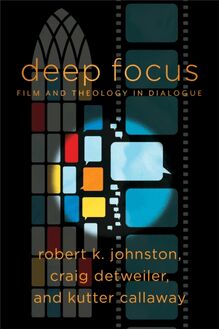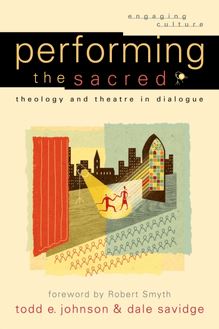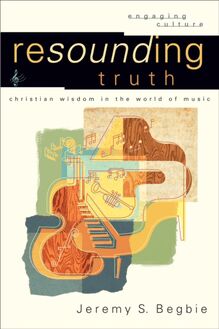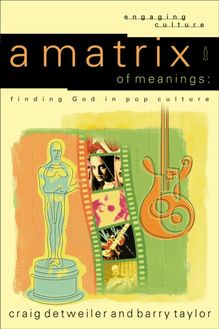-
 Univers
Univers
-
 Ebooks
Ebooks
-
 Livres audio
Livres audio
-
 Presse
Presse
-
 Podcasts
Podcasts
-
 BD
BD
-
 Documents
Documents
-
- Cours
- Révisions
- Ressources pédagogiques
- Sciences de l’éducation
- Manuels scolaires
- Langues
- Travaux de classe
- Annales de BEP
- Etudes supérieures
- Maternelle et primaire
- Fiches de lecture
- Orientation scolaire
- Méthodologie
- Corrigés de devoir
- Annales d’examens et concours
- Annales du bac
- Annales du brevet
- Rapports de stage
La lecture à portée de main
Vous pourrez modifier la taille du texte de cet ouvrage
Découvre YouScribe en t'inscrivant gratuitement
Je m'inscrisMatrix of Meanings (Engaging Culture) , livre ebook
Découvre YouScribe en t'inscrivant gratuitement
Je m'inscrisEn savoir plus
Vous pourrez modifier la taille du texte de cet ouvrage
En savoir plus

Description
Sujets
Informations
| Publié par | Baker Publishing Group |
| Date de parution | 01 novembre 2003 |
| Nombre de lectures | 0 |
| EAN13 | 9781585583324 |
| Langue | English |
Informations légales : prix de location à la page 0,0864€. Cette information est donnée uniquement à titre indicatif conformément à la législation en vigueur.
Extrait
Engaging Culture
W ILLIAM A. D YRNESS
AND R OBERT K. J OHNSTON ,
SERIES EDITORS
The Engaging Culture series is designed to help Christians respond with theological discernment to our contemporary culture. Each volume explores particular cultural expressions, seeking to discover God’s presence in the world and to involve readers in sympathetic dialogue and active discipleship. These books encourage neither an uninformed rejection nor an uncritical embrace of culture, but active engagement informed by theological reflection.
© 2003 by Craig Detweiler and Barry Taylor
Published by Baker Academic a division of Baker Publishing Group P.O. Box 6287, Grand Rapids, MI 49516-6287 www.bakeracademic.com
Ebook edition created 2012
All rights reserved. No part of this publication may be reproduced, stored in a retrieval system, or transmitted in any form or by any means for example, electronic, photocopy, recording without the prior written permission of the publisher. The only exception is brief quotations in printed reviews.
ISBN 978-1-5855-8332-4
Library of Congress Cataloging-in-Publication Data is on file at the Library of Congress, Washington, D.C.
Unless otherwise indicated, epigraphs are from the following sources: Laurence J. Peter, Peter’s Quotations: Ideas for Our Time (New York: Bantam Books, 1977); Ronald Warren Deutsch, Inspirational Hollywood: Reflections on Life, Love, and the Art of Filmmaking (Studio City, Calif.: M. Wiese Productions, 1997); Herbert V. Prochnow and Herbert V. Prochnow Jr., A Treasury of Humorous Quotations (New York: Harper & Row, 1969); and The Oxford Dictionary of Quotations, 3d ed. (Oxford: Oxford University Press, 1980).
Unless otherwise indicated, Scripture quotations are from the Holy Bible, New International Version. NIV. Copyright 1973, 1978, 1984 by Biblica, Inc. Used by permission of Zondervan. All rights reserved worldwide. www.zondervan.com
Scripture quotations identified KJV are from the King James Version of the Bible.
Scripture quotations identified T HE M ESSAGE are from T HE M ESSAGE . Copyright © by Eugene H. Peterson 1993, 1994, 1995. Used by permission of NavPress Publishing Group.
Every effort has been made to contact the owners of copyrighted material for permission to use their material. If such material has been included without the correct copyright notice or without permission, due to error or failure to locate the appropriate owner, we apologize and ask that the owner contact the authors in care of Baker Publishing Group. The correct information will be included in subsequent printings of the book.
Cover
Series Page
Title Page
Copyright Page
Preface
Acknowledgments
Introduction: Postmodernity in the Marketplace
1. Methodology: A Matrix of Meanings
2. Advertising: The Air That We Breathe
3. Celebrities: Ancient and Future Saints
4. Music: Al Green Makes Us Cry
5. Movies: Look Closer
6. Television: Our Constant Companion
7. Fashion: Dressing Up the Soul
8. Sports: Board Generation
9. Art: Sharks, Pills, and Ashtrays
Conclusion: A Top 10 Theology
Notes
Bibliography
Index
The first demand any work of any art makes upon us is surrender. Look. Listen. Receive. Get yourself out of the way. (There is no good asking first whether the work before you deserves such a surrender, for until you have surrendered you cannot possibly find out.)
C. S. Lewis, An Experiment in Criticism
The Rolling Stones began “Sympathy for the Devil” by singing, “Please allow me to introduce myself.” Many view pop culture as the devil, as something to shun, avoid, and oppose. Rapper Eminem may be seen as the latest example of evil emanating from pop culture. His songs contain ample evidence of profanity, misogyny, and homophobia. He courts controversy, relishes a fight, openly plays the devil to enrage parents and other guardians of taste. Yet Eminem’s film debut, 8 Mile , also includes some surprisingly inspiring and spiritual undertones. The rap battles in the film take place at “the shelter,” in a church basement. They are hosted by Future, a person of prayer who encourages Eminem’s character, Rabbit, to “flip the script” onstage. Rabbit wins the rap contest by acknowledging his weaknesses, owning his embarrassments, revealing whatever secrets his opponents may use against him. Eminem’s approach is summarized in the Academy Award–winning song from the 8 Mile soundtrack, “Lose Yourself.” He loses himself in the music, but the principle of self-renunciation, “flipping the script,” finds surprising parallels in the words of Jesus.
In the Gospel of Luke, Jesus challenged his followers to deny themselves, take up their cross daily, and follow him, “For whoever wants to save his life will lose it, but whoever loses his life for me will save it” (Luke 9:24). Jesus’ paradoxical teaching flipped the script on people’s understanding of power, life, and religion. You find life by losing yourself in Christ. Eminem may be the devil to some, but his via negativa has roots in Jesus’ surprising strategies. It is easy to identify what’s wrong with Eminem, but finding what’s right, identifying and understanding what millions of teens connect with, takes much more work.
We want to flip the script on our understanding of pop culture, to look closer at what lies behind the music. Consequently, this book will offer “sympathy for pop culture,” suggesting that God shines through even the most debased pop cultural products. Consider this a via positiva . Now, please allow us to introduce ourselves.
We approach popular culture first and foremost as fans. Craig grew up in Charlotte, North Carolina, in a basement featuring posters of the Miami Dolphins, U2’s Unforgettable Fire , and Humphrey Bogart. He has compiled a journal of his lifelong film-going, complete with capsule reviews. Barry’s love for popular music started in England, where he scoured record shops in search of American soul music. Our houses are filled with books, compact discs, and DVDs.
We write primarily as practitioners, artists involved in the day-to-day process of creating pop culture. Barry toured the world, creating the concert sound for musicians such as Marvin Gaye, Tony Bennett, and AC/DC. His original songs have appeared in movies such as Green Dragon, Avenging Angelo , and Half Past Dead . Craig graduated from the University of Southern California’s film school and writes screenplays, including the teen comedy Extreme Days . We engage with popular culture out of genuine enjoyment, love, and respect.
We also write as pastors and teachers, having devoted ourselves to articulating a biblical faith for the twenty-first century. We love Jesus, even if we have our problems with Christianity. We both graduated from Fuller Theological Seminary in Pasadena, California. Fuller stands out as one of the world’s largest, most diverse training centers for ministers, missionaries, and psychologists. We have worked in organizations such as Young Life and with churches such as Sanctuary and New Ground. We have invested significant time living among people in Japan, the Soviet Union, Europe, and urban America. We both treasure conversation, thoroughly enjoying the classes we teach at the Art Center College of Design, the Los Angeles Film Studies Center, and Fuller Theological Seminary. This book arises out of ongoing conversations with our insightful students.
We write for that bright, passionate audience of young people whom advertisers covet and the church is in danger of losing. We hope to offer some clues, some handles, some reference points for processing the sensory avalanche that pop culture creates 24/7. We hope to inspire the person of faith struggling with too much information as well as artists and culture watchers who dig God but can’t stomach religion. We’ve always preferred the conversations occurring on the margins, with people heading either toward or away from God with passion and conviction.
We acknowledge that the entertainment industry generates plenty of products worth criticizing. Pop culture can transmit many allusions and delusions, leading unsuspecting audiences toward paths of destruction. As parents, we share many of the concerns raised about music, television, and film’s contribution to escalating social violence. We wonder if video games desensitize habitual users. We would never condone bankrupt films such as The Cell or avowedly destructive bands such as Slayer and Cannibal Corpse. We worry about the sexualizing of our culture, about consumerism, about what art exactly is!
While recognizing people’s legitimate concerns, we believe that the “sins” of pop culture have received ample coverage in previous books. Our book will concentrate on what’s right with pop culture. We write for those with a love for P.O.D., a passion for The Matrix , and a commitment to Friends . Rather than attack pop culture, we’ve chosen to adopt the directive captured on the provocative poster for American Beauty . We want to “look closer,” to examine where God might be lurking in the songs, shows, and films kids continually return to for solace and meaning. We celebrate the rise of pop culture as among the most profound, provocative, exciting expressions of legitimate spiritual yearning in at least one hundred years. We turn to pop culture in our efforts to understand God and to recognize the twenty-first-century face of Jesus.
We embrace pop culture because we believe it offers a refreshing, alternative route to a Jesus who for many has been domesticated, declawed, and kept under wraps. As the Christian church has often adopted the role of moral policeman, pop culture has assumed the role of spiritual revolutionary, subverting and frustrating those religious authorities who desperately cling to black-and-white answers in an increasingly gray world. We write this book in hopes of freeing Jesus from the chains that have bound him. We believe a bold, ancient, radical Christ stands on
-
 Univers
Univers
-
 Ebooks
Ebooks
-
 Livres audio
Livres audio
-
 Presse
Presse
-
 Podcasts
Podcasts
-
 BD
BD
-
 Documents
Documents
-
Jeunesse
-
Littérature
-
Ressources professionnelles
-
Santé et bien-être
-
Savoirs
-
Education
-
Loisirs et hobbies
-
Art, musique et cinéma
-
Actualité et débat de société
-
Jeunesse
-
Littérature
-
Ressources professionnelles
-
Santé et bien-être
-
Savoirs
-
Education
-
Loisirs et hobbies
-
Art, musique et cinéma
-
Actualité et débat de société
-
Actualités
-
Lifestyle
-
Presse jeunesse
-
Presse professionnelle
-
Pratique
-
Presse sportive
-
Presse internationale
-
Culture & Médias
-
Action et Aventures
-
Science-fiction et Fantasy
-
Société
-
Jeunesse
-
Littérature
-
Ressources professionnelles
-
Santé et bien-être
-
Savoirs
-
Education
-
Loisirs et hobbies
-
Art, musique et cinéma
-
Actualité et débat de société
- Cours
- Révisions
- Ressources pédagogiques
- Sciences de l’éducation
- Manuels scolaires
- Langues
- Travaux de classe
- Annales de BEP
- Etudes supérieures
- Maternelle et primaire
- Fiches de lecture
- Orientation scolaire
- Méthodologie
- Corrigés de devoir
- Annales d’examens et concours
- Annales du bac
- Annales du brevet
- Rapports de stage



















